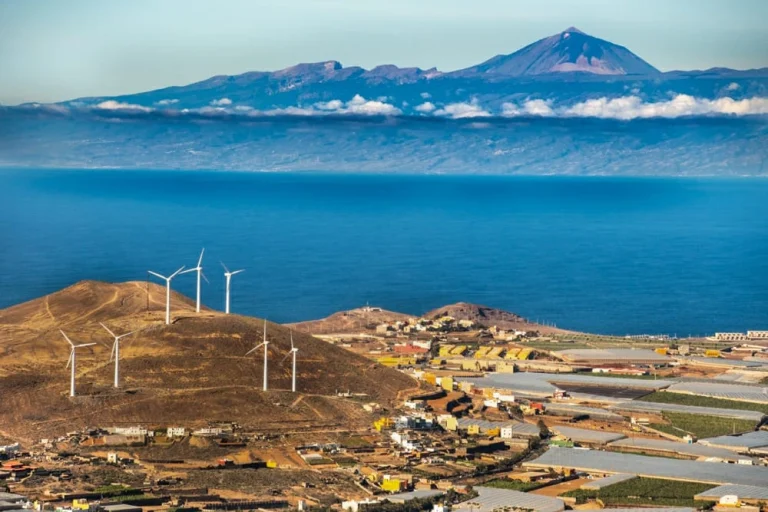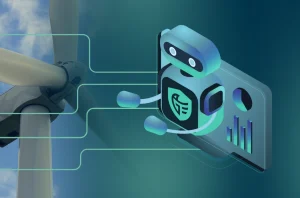In Spain, wind farm installations were first tested in areas with high wind resources like Tarragona, Galicia or Tarifa. From a qualitative point of view, the Canary Islands also presented excellent conditions for the use of this resource. The Canarian archipelago has an enormous wind potential which has been used during the past few decades for generating electricity and for other purposes such as desalination, pumping of wells, water conveyance, etc., directly or mixed, sharing supply with the electrical network and in coexistence or not with other systems.
Installed wind capacity in the Canary Islands increased from 7.7% in 2010 to 17.5% in 2020. However, this growth hasn’t been gradual over the years. It was from the year 2018 to 2019 when the percentage of renewables in the energy mix rose in more than 7 points. This rapid growth over the past three years has further strengthened power regulation policies commanded by the national grid. More than ever, Spanish TSO requires wind farms to have reliable curtailment capabilities to regulate the energy poured into the grid.
Most wind farm owners had to adapt to production curtailments and many of them realized that they needed external help to comply with the national grid. Their legacy SCADA systems were no longer working or couldn’t meet new regulations. Nowadays, this still leads to heavy financial penalties for many wind farm owners due to their inability to meet these requirements. Therefore, when a wind farm is not complying with TSO regulations, it is considered a matter to be solved urgently.
We wanted to bring up a real case of power regulation compliance with a particular wind farm owner. Agragua is a company dedicated to water desalination and distribution for agricultural applications on the island of Gran Canaria. To reduce its energy bill and also contribute to the social benefit of the area, Agragua developed the Montaña Pelada wind farm together with IDAE (the Institute for Energy Diversification and Saving). This power plant, built in the early 2000s, is composed of 7 turbines with a total of 4.6 MW. The wind farm has been supplied by MADE technologies.
Since 2019 the Montaña Pelada wind farm was affected by new power regulations due to the increasing participation of renewables into the Canary Islands energy generation mix. With its SCADA system quite out of date, compliance with the different curtailments was almost impossible.
Agragua had the urgent need to regulate the power of its wind farm to comply with curtailments and ARSOS software made it possible. We are very pleased with the system performance and its smooth implementation.
To solve this problem, Green Eagle Solutions, through its ARSOS platform, replaced the control function of the legacy SCADA that had become obsolete. In this way ARSOS delivers real-time information from the wind farm to the TSO and gathers curtailment commands coming from the energy dispatching center. Green Eagle Solutions’ software automatically applies these curtailment orders to the wind farm. Thanks to the implementation of ARSOS technology, this old—but still fully operational—wind farm is capable of fulfilling any regulation requirement in terms of power control.

Power regulation issues similar to Agragua are commonly found in many of those wind farms commissioned in the early 2000s whose monitoring and control systems were not designed to meet some of the current electrical market needs. ARSOS Intelligent Control’s capabilities help these assets owners to continue operating despite the lack of control capabilities provided by the legacy OEM SCADA.





